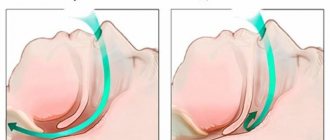Autism in adults
Autism is a genetically determined disorder that occurs due to chromosomal abnormalities. Many compare pathology with mental retardation, detachment of the patient and his inactivity. In practice, things are different. There are a lot of talented and outstanding individuals among autistic people. This misperception of people with autism often leads to ridicule from others. As a result, the patient becomes even more withdrawn, suppressing his own genius abilities.
Adult autistic syndrome differs from childhood autistic syndrome in its manifestations.
Sometimes the disease develops against the background of long-term troubling depressive disorders. Due to such isolation from reality and a pronounced reluctance to contact others, acquired autism occurs in adults. The syndrome is dangerous because it is fraught with absolute disorders of the human psyche. The patient becomes conflicted, which may result in him losing his job or family, etc.
Signs of autism in adults are characterized by pronounced severity. Although patients are endowed with intelligence, have certain life goals and a rich inner worldview, their relationships with others are quite complex. Most cope well with everyday tasks, but they continue to live and engage in creativity separately. But there are also complex cases of pathology, when even the simplest self-care skills are incomprehensible to the patient.
Article on the topic: Causes of autism in children and signs of childhood autism
Types of autism and its classifications
There are five classic presentations of autism. They all belong to the same disease, but are divided into groups according to the nature of their manifestations and the degree of lack of interaction with the outside world. The following groups of patients suffering from autism are distinguished:
- first, patients refuse to interact with the outside world, contacts are practically reduced to zero;
- the second is that people are closed in on themselves and can devote all their time to the same activity. They forget about the need for sleep or rest and do not feel such a desire even during prolonged wakefulness;
- the third is people who ignore social orders and norms of society because they are unable to perceive them;
- the fourth are autistic adults who cannot cope with their daily problems. Tend to feel resentment towards others;
- the fifth are autistic adults with a high level of intelligence who make a successful attempt at socialization and adapt to society. They can interact with others almost on equal terms, are able to study, master professions and work in areas related to mental work.
In the last group of autistics, people periodically meet with manifestations of the “genius gene.” Its activation is associated with processes occurring in the brain of a person with autism. Such people can achieve very great success in various fields of science and professional fields. But their interaction with the world is often complicated by social boundaries and misunderstandings on the part of loved ones.
Relatives and those around patients often themselves worsen the patient’s condition by communicating incorrectly with him and humiliating him. To establish contact between relatives and the autistic person, special courses are created where you can not only find a way to communicate with the patient, but also teach him the necessary self-care skills. The effectiveness of such courses largely depends on the patient’s condition and the form of manifestation of the disease.
Types of autism
In addition to dividing the signs of autism into groups according to the degree of manifestation, there is another classification. In Russia in 1987, a scheme was developed that divides all manifestations of autism into 7 types due to their occurrence:
- autistic psychopathy Asperger's;
- Kanner's early classic infantile autism syndrome;
- autism caused by chromosome aberrations;
- autism caused by the presence of Rett syndrome;
- endogenous and paroxysmal autism caused by schizophrenia;
- residual organic state of the patient’s body;
- autism of unknown origin.
This system subsequently made it possible to combine the known causes of autism and its types under the common acronym ASD (autism spectrum disorder).
Features of autism in children
According to ASD, types of autism should be distinguished by the manifestations of a particular syndrome or condition. Each of the points in this classification has a different set of symptoms and a different prognosis, but the following groups are the most indicative:
Childhood autism
This item includes Kanner syndrome, autistic disorder and infantile forms of autism. Symptoms of this group of deviations appear between the ages of 1 and 3 years. Kanner syndrome and similar conditions are characterized by the following symptoms:
- inability to establish relationships with other people from an early age;
- insufficient use of speech for communication;
- ignoring external stimuli up to the point of pain;
- “identity phenomenon” - fear of changes in the environment;
- delayed development of self;
- echolalia of immediate and delayed type;
- stereotypical games.
Rett syndrome
Symptoms of autism begin to appear in children under 3 years of age. A difficulty in diagnosis is the absence of earlier signs of delay in the child’s development, since the disease in the vast majority of cases manifests itself against the background of normal development. Rett syndrome is characterized by the following symptoms:
- child's detachment;
- speech development is suspended or stopped;
- already acquired skills are lost;
- within 3-6 months the child completely loses his acquired speech reserve;
- the ability to hold an object in the hand is lost;
- breathing disorder;
- epileptiform seizures;
- progressive decline in motor skills;
- development of serious impairments in motor function;
- loss of muscle tone.
Rett syndrome is one of the most severe manifestations of ASD. It cannot be corrected, and by the age of 5-6 years of life, the symptoms of the syndrome in a child are similar to the consequences of the last stage of severe organic diseases of the central nervous system.
Asperger's syndrome
With this syndrome, children retain logical thinking well, develop a non-standard perception of themselves and the world around them, but there is instability of active and passive attention. Other signs of this syndrome include:
- communication dysfunction;
- stereotypical interests and behavior;
- impulsiveness in behavior;
- the gaze is directed “inward”;
- attachment to the familiar surrounding space.
Many of the symptoms of this syndrome are similar to Kanner's disease. But with this form there are no significant delays in speech development and cognitive awareness.
Atypical autism
What atypical autism is and how it manifests itself is impossible to say for sure. The external symptoms of this disease are similar to Kanner's syndrome, however, all diagnostic criteria are missing. This condition is typical for adults and most often develops against the background of mental retardation or concomitant diseases and difficulties at various stages of development. Atypical autism is characterized by:
- occurrence after 3 years;
- significant disturbances in social interaction between the patient and others;
- stereotypical and limited behavior that is repeated with a certain frequency.
Signs
If autism is suspected, special attention should be paid to the patient's loneliness. Typically, autistic people prefer an isolated existence because there is a lack of understanding in society. In children, the pathology is characterized by psycho-emotional disorders, and the manifestation of autism in adults is associated with a closed, isolated lifestyle.
Another characteristic sign of autistic disorder in adults is communication problems. They manifest themselves most sharply during a conversation at sharp or elevated notes. In such a situation, the patient experiences manifestations of aggressiveness, and severe pain is concentrated in the abdomen.
External signs of autism in adults can manifest themselves in the following forms:
- Mild autism in adults is accompanied by erratic and involuntary movements: fiddling with parts of clothing or scratching during a conversation;
- Difficulty mastering new skills, minimal number of interests or hobbies;
- Usually, the acquaintances of autistic people do not last long, because the patient does not understand the rules and principles of communication of the opponent;
- There are speech deviations, which are manifested by a lisp or inability to pronounce any sounds, lethargy, the patient’s speech is incoherent, and the vocabulary is poor;
- Often, autistic adults speak in a monotonous and monotonous manner, without showing any emotion in the conversation;
- When exposed to sharp sounds or too bright light, an autistic person often begins to have panic attacks;
- The activity of an autistic person is constantly cyclical, reminiscent of a ritual action;
- Autism in adulthood is often characterized by a lack of tact, which is noticeable in loud speech and the manner of violating the space of the intimate zone;
- Sometimes the pathology is complicated by poor hearing and muteness, which only increases the patient’s isolation;
- Such patients are usually indifferent to what is happening, they do not show emotions even when some kind of grief or joyful event occurs among loved ones;
- Autistic people often have a strong reluctance to have anyone touch them or their things;
- Autistic people often show aggression towards others and may be afraid of them.
Autistic people have virtually no sense of danger, they are able to laugh inappropriately, and they have reduced pain sensitivity. Sometimes aggression arises simply because of a new item in the wardrobe. In such a clinical situation, it is recommended to provide a familiar environment for the autistic person, where other household members should not touch anything.
Autism in adult males is characterized by a persistence that resembles cyclical activity, like paranoia. The systematization of objects surrounding the patient becomes an important value. With such manipulations, men prevent panic attacks and aggressive attacks. Although the signs of autism in adult men are associated with a narrow range of interests, each patient is typical of his own hobbies for the cyclical repetition of different actions.
Although the pathology is more typical for the male population, symptoms of autism are often found in adult women. But in most cases, women live with undiagnosed pathology for the rest of their lives. The bad thing is that they do not receive proper help and treatment to make their existence easier and lead a normal life.
Patients with high-functioning autism or Asperger's syndrome typically have unique characteristics that make diagnosing the disorder very difficult. As a result, strengths skillfully mask the inadequacy of other skills.
Signs of autism in adult women are partly manifested by some sloppiness , lack of desire for self-improvement, etc. Autism can be recognized by an unusual attitude towards children.
Autistic mothers do not perceive parental responsibility, are indifferent to the life of their child, it does not matter to them whether the child is hungry or full, how he is dressed, etc.
Treatment of autism
The disease cannot be ignored, as it can progress and can lead to complete isolation and severe aggression of the patient. First, you need to choose an individual approach to the patient, becoming a good friend for him. After this, through conversations and activities to develop fine motor skills, intellectual stimulation, with the help of even the most ordinary mosaics and pictures, the IQ level will gradually increase.
If treatment is successful, the patient will begin to make contact with other people and try to perceive incoming information. If this does not help or does not bring the desired result, medications are prescribed. If severe anxiety and panic attacks occur, the patient will be prescribed antidepressants.
If a patient exhibits severe aggression, he should take antipsychotics, which can suppress irritation by blocking the activity of nerve endings. But it is worth understanding that because of this, the patient can become very slow and poorly perceive incoming information. In this case, analeptics will be prescribed that will increase attentiveness and the ability to think.
Forms of the disease
Each type has identical symptoms, but they also have some differences.
Experts identify several of the most common forms of autism:
- Kanner's syndrome. Severe lesions of the cerebral cortex are typical, leading to communication problems. Patients suffer from speech disorders, there is aggressiveness, and weak intelligence. It is almost impossible to find an approach to such an autistic person. This is the most complex autistic form, which is characterized by the presence of almost all manifestations of pathology;
- Asperger's syndrome. It has similar symptoms, but manifests itself in a complex or mild form, and often proceeds more mildly. Symptoms of mild autism in adults do not prevent an autistic person from becoming a full-fledged member of society if he can overcome fear and timidity. Such patients are able to perform the activities necessary for work and a full life. But sometimes they get very fixated on work, they have no hobbies, they try to spend all their time in isolation;
- Rett syndrome. The most dangerous form is transmitted through female inheritance. Behavioral symptoms are easily relieved by drug treatment, however, speech and external abnormalities cannot be removed with drugs. The disease takes a long time to develop and is rare. Signs of autism in adult women typically involve a lack of communication, unsociability, and symbolization. Such patients usually live only about 30 years;
- Atypical form. This autism is typically characterized by the absence of one of the characteristic signs, which complicates diagnosis. There are speech and motor disorders, and motor function disorders.
- High functioning autism. This form of pathology is diagnosed when the patient has relatively high intelligence scores (more than 70). This autistic form is manifested by dull or acute sensory perception, weakened immunity. High-functioning autism in adults is accompanied by irritable bowel movements, periodic attacks of convulsive muscle contractions, and disturbances in the functioning of the pancreas. Signs of high-functioning autism in adults are characterized by behavioral stereotypes, a narrow range of interests, sudden outbursts of aggression and difficulties in socialization.
Article on the topic: Detailed description of all types and classification of autism
Only a specialist can determine an accurate diagnosis, since identifying autism of any form requires a face-to-face consultation with a specialist and a sufficiently long observation of the patient.
Rehabilitation
Typically, autistic disorders are diagnosed in childhood, but it also happens otherwise, when the clinical picture is erased, the patient can live until adulthood and even adulthood, not knowing about his psychopathological characteristics. According to statistics, about a third of autistic people with Asperger's disease have never been diagnosed with Asperger's disease.
Ignorance of the disease contributes to serious problems in all areas of the patient’s life from family to professional activity. They are often treated as strange, mentally ill people or even discriminated against. Therefore, such patients try to avoid society, choosing a lonely life.
In specialized institutions, autistic people can undergo rehabilitation, which will help reduce anxiety, increase attention and concentration, normalize psychophysical fitness, etc. This may include music therapy, hydrotherapy, classes with a speech therapist or a theater group.
The sooner correction is started , the higher the socialization of the patient will be in adulthood. In special schools, adolescents are improved in self-care and independent action, planning their activities, and social skills. They study according to special programs like ABA, FLOOR TIME, RDI, TEACH system, etc.
Some states even practice the creation of special apartments where caregivers will help patients, but the patients will not be deprived of their independence. If the disease has developed to its full extent, then such a patient will need constant care from relatives, since they are not capable of independent life.
April is Autism Awareness Month. Learn how to deal with special people
Research shows that accepting a diagnosis goes through several stages.
Immediately after a child's diagnosis, many parents experience enormous stress. Some people find it difficult to start a conversation about the child, do not rush them, do not try to force them to talk about what is difficult for them. But this does not mean that you should stop communicating with your loved one and wait until their situation normalizes. Despite autism, life goes on. Offer your help if appropriate.
Even if a person doesn't use the word "autism," they will appreciate you asking how their child is doing.
Try not to let your child’s diagnosis interfere with your normal, everyday, friendly conversations. There is no need to pretend that nothing is happening, your friends will remain your friends.
Over time, most people accept their child's diagnosis and feel the need to talk about it. Try to meet halfway and learn to listen carefully. And again, try to keep hasty advice and perplexed comments to yourself; they are unlikely to be useful, but they can definitely become an obstacle to further communication. If a friend or relative brings up the topic of autism, ask how your son or daughter is doing. Parents who have children with special needs are proud of even their smallest achievements, so they will be pleased to tell you about them, try to share the joy of these successes with them.
If your relative or friend openly discusses the problems of autism and is actively looking for reliable information, then you can recommend trusted sources to him - on the websites of the Naked Heart and Exit foundations, a large amount of information has been collected in Russian, the latest scientific research in the field of studying disorders is published autism spectrum On these sites you can find descriptions of individual practical techniques and entire programs that have scientifically proven effectiveness.
Continue to spend time with your friends the same way you did before they told you about their child’s diagnosis: go to cafes, parks, museums, invite them to visit. If your friends feel like there's too much going out or they feel better with their kids in certain places, they'll tell you so. The main thing is that they do not feel isolated or thrown out of social life.
Continue to treat the child whose diagnosis you have learned as before. Autism is not a disease, so you shouldn’t call your child “sick” and feel sorry for him. People with autism are people first and foremost, and should be treated as you would like to be treated. Ask your friends or loved ones what their child likes and what to avoid. Try to behave naturally.
Many people with autism find it difficult to talk to them in long sentences. Try to speak more simply and allow time to process the information and respond.
More and more people with autism are beginning to use supplementary communication tools (pictures, special programs on a tablet or phone). Observe how your loved ones communicate with your child, ask how you can use this language of communication.
The life of a family with a child with special needs can be difficult: the family begins to attend special classes, they have to deal with many bureaucratic issues and at the same time continue to work and run a household. A child with autism may have increased sensitivity to certain sounds, smells, and tactile sensations. Therefore, for them, a regular trip to the supermarket or traveling on public transport can become a serious challenge.
Discuss whether your friends need help by bringing groceries from the store or picking up dry cleaning, this could be a big help for them.
Recommendations for family members of an autistic person
It is quite possible to improve the quality of life with such a pathology if loved ones actively participate in the process of adaptation of the autistic person to society. The main role in these processes is given to parents, who must thoroughly study the characteristics of the disease. You can visit autism centers; there are special schools for children.
Relevant literature will also help, from which the patient’s family will learn all the intricacies of building relationships and living together with such a person.
Here are some more useful tips:
- If an autistic person is prone to running away from home, but cannot find his way back on his own, it is advisable to attach a tag with a phone number and address to his clothes;
- If there is a long trip ahead, it is recommended to take something from the patient’s favorite things, which helps him calm down;
- Avoid long lines, as autistic people often start to panic in them;
- You should not violate the patient’s personal space; he should have his own room, where he will arrange things and objects at his own discretion, while household members are not allowed to touch, move, rearrange, or rearrange anything.
The family should accept that their loved one is special, so they must learn to live taking this circumstance into account.
Is it possible to get disability
According to current legislation, an adult with autism is entitled to disability. For this:
- You need to go to the clinic at your place of registration to confirm the diagnosis. You can contact a psychiatrist or neurologist.
- After the examination, the doctor will issue a referral for a medical examination and give recommendations regarding additional examinations and specialists who will need to be examined.
- When the examination is completed, all results are transferred to the doctor (psychologist, psychiatrist) who issued the appropriate referral. It is he who will prepare the documentation for the commission.
- All that remains is to come to the ITU with the finalized documents.
Article on the topic: How to apply for disability due to autism
Reviews
Many autistic adults share feedback about their condition, trying to convey their difficulties to others. For example,
Alexandra from St. Petersburg writes: “Autistic people need special treatment. These people are not arrogant, they just cannot do much without proper instructions. We don’t need to be pitied, we need help.”
Or here’s another revelation from a young guy from Moscow: “I couldn’t get into any university, although I really wanted to get a programmer’s education, and also a music degree. It’s good that now there is a worldwide network where I can communicate calmly and no one disturbs my space. By the way, this is where I found people with a similar diagnosis. We support each other."
From these reviews it becomes clear that the life of adults with such disorders is difficult; it is not easy for them to find themselves in society, because society ignores all the problems of such patients. It’s a shame that in Israel, for example, this problem is being dealt with at a higher level.
conclusions
Autism can be corrected with the right approach. There is no special medicine that can relieve the patient of the characteristic manifestations of the pathology. But how to live as an adult with autism.
It is still possible to help the sick. Through medications and behavioral therapy, the risks of mental disorders, panic or aggressive attacks can be significantly reduced.
In case of a complex form of the disease, loved ones need to take care of care and care, and for life, and choose the most optimal program according to which the patient will live and study. If the pathology occurs in a mild form, then the patient will need correctional classes, where he will learn socialization, for example, stop being afraid of others, learn to say hello when meeting and be interested in the feelings of others, and will also be able to normally express his emotions and feelings.
Such autistic people may well learn communication skills in the workplace, which will give them the opportunity to work normally.
Video of an autistic adult woman |
How adapted is an autistic person to life?
The disease cannot be ignored, as it can progress and can lead to complete isolation and severe aggression of the patient. First, you need to choose an individual approach to the patient, becoming a good friend for him. After this, through conversations and activities to develop fine motor skills, intellectual stimulation, with the help of even the most ordinary mosaics and pictures, the IQ level will gradually increase.
If treatment is successful, the patient will begin to make contact with other people and try to perceive incoming information. If this does not help or does not bring the desired result, medications are prescribed. If severe anxiety and panic attacks occur, the patient will be prescribed antidepressants.
No matter how strange it may seem, autistic people quite often achieve success in the fields of mathematics and physics. They can ponder over some formula for quite a long time; thanks to their perseverance, they observe rare processes that subsequently lead to discoveries and breakthroughs in science. In addition, people with a mild form of the syndrome can become talented musicians, scientists, directors, models and actors. Bob Dylan, Isaac Newton and even the twentieth US President James Garfield are all examples of autism, which did not prevent it from becoming a legend and history.
If studies have shown that you suffer from autism, or your loved one is faced with this problem, you should not immediately think that life ends there. In conditions of normal social communication, in which there are understanding people and friends who are close in spirit to the sick person, a patient with a similar diagnosis can fully realize himself in the professional and personal sphere.









